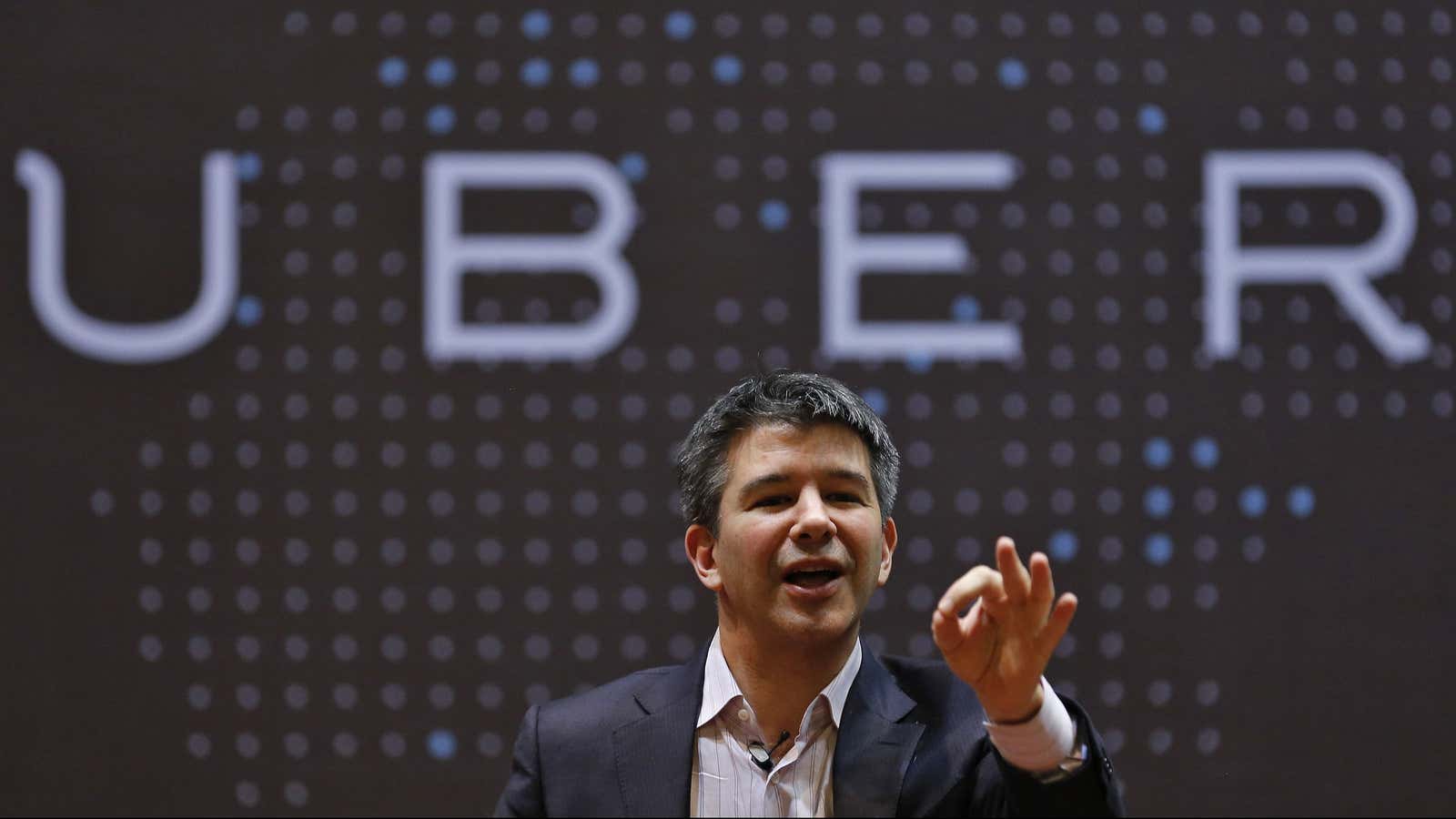Uber said Wednesday (June 1) that it had raised $3.5 billion in cash—its biggest single investment to date—from Saudi Arabia’s Public Investment Fund.
The deal is being counted in Uber’s latest financing round, and continues to value the company at $62.5 billion. Uber’s cash-and-credit war chest now tops $11 billion.
“We appreciate the vote of confidence in our business as we continue to expand our global presence,” Uber CEO Travis Kalanick said in a statement.
The Public Investment Fund is Saudi Arabia’s main investment fund. As part of the deal, Yasir Al Rumayyan, who oversees the fund, will gain a seat on Uber’s board. He joins media mogul Arianna Huffington, another recent Uber board appointee.
While Uber dominates the US ride-hailing market, the company’s ambitions are global in scope, and it is pouring money into building out its presence overseas. Uber has heralded the Middle East and North Africa as one of its fastest-growing regions, and said it will spend $250 million on expansion there. The company sees traffic-riddled cities in countries such as Egypt as having particularly meaningful growth potential.
Uber claimed to have 395,000 active riders in the Middle East and North Africa as of the first quarter of 2016, up 500% from the same period a year prior, and 19,000 active drivers, a 400% increase. In comparison, Uber says it has 450,000 active drivers in the US, and 1.1 million globally.
Uber’s main local competitor in the Middle East is Careem, a ride-hailing startup that got going in Dubai in 2012. Careem raised $60 million last November in a series C funding round led by the Abraaj Group, a private equity firm. At the time, Careem said it was operating in 20 cities across the Middle East and North Africa, including Abu Dhabi, Beirut, Cairo, Kuwait, and Lahore.
As with many other parts of the world, Uber has encountered fervent opposition from taxi drivers in the Middle East. In March, drivers blocked off a major road in Cairo to protest Uber and other ride-hailing startups until Egyptian security forces dispersed them with tear gas. Taxi drivers contest that Uber has an unfair advantage because it skirts fees, taxes, and licensing procedures that they must comply with.
Elsewhere, Uber is spending a reported $1 billion a year in China, though it claims to be generating an equivalent amount in profit from its top 30 cities globally. Uber operates in more than 400 cities spread throughout 69 countries.
